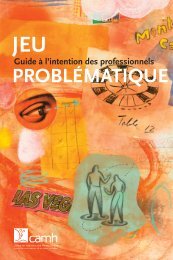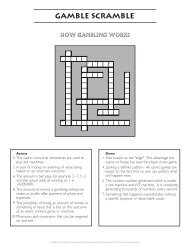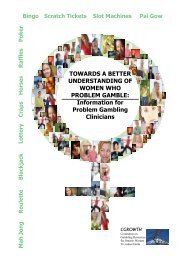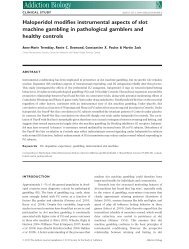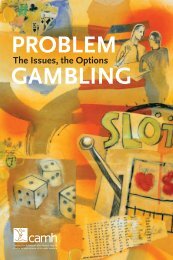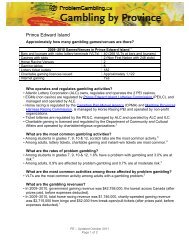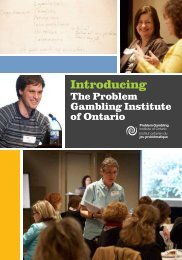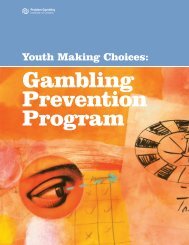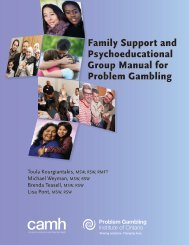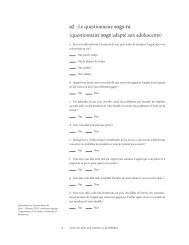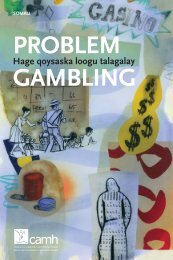Problem Gambling: A Guide for Helping Professionals
Problem Gambling: A Guide for Helping Professionals
Problem Gambling: A Guide for Helping Professionals
Create successful ePaper yourself
Turn your PDF publications into a flip-book with our unique Google optimized e-Paper software.
<strong>Problem</strong> <strong>Gambling</strong>: A <strong>Guide</strong> <strong>for</strong> <strong>Helping</strong> <strong>Professionals</strong><br />
<strong>Problem</strong> gambling experts have identified a number of counselling<br />
principles and best practices that are particularly effective in dealing<br />
with gambling problems and can complement your work as a helping<br />
professional.<br />
motivating client change<br />
<strong>Helping</strong> to build motivation to change is an important aspect of counselling.<br />
People who gamble struggle with conflicting motivations.<br />
They may want to stop gambling, but may not want to give up the<br />
hope of the big win. They may still see gambling as a solution to their<br />
problems or fear the emptiness of life without it.<br />
Motivational interviewing helps clients to recognize their problems<br />
with gambling—and do something about them. Through gentle<br />
exploration and presentation of facts, counsellors guide clients to their<br />
own conclusions. Motivational principles include:<br />
Express Empathy<br />
A respectful and compassionate approach helps to facilitate openness.<br />
“You must be feeling overwhelmed with all the challenges you are facing.<br />
How have you managed <strong>for</strong> so long”<br />
Through the interview process, acknowledge the challenges clients<br />
are facing and the ef<strong>for</strong>ts they have made to resolve their problems.<br />
Accept ambivalence towards change as normal.<br />
Help the Client See the Consequences of <strong>Gambling</strong><br />
Create a discrepancy between continued gambling and achieving<br />
important goals identified by the client, such as getting out of debt or<br />
improving family relations and health:<br />
“I don’t understand. You’ve said you want to work on things at home, but<br />
you tell me you go out gambling every night.”<br />
30



